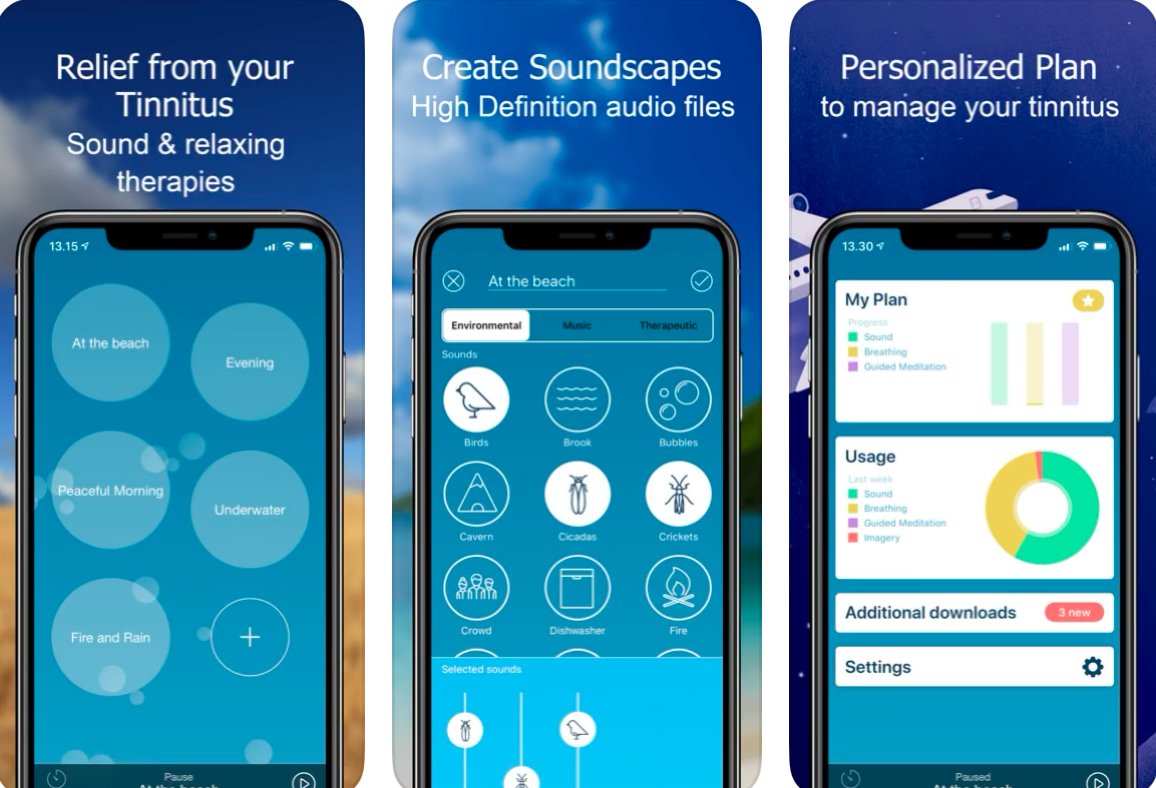Tinnitus is a condition that affects millions of people worldwide. Characterized by the perception of sound in the ears or head without an external source, tinnitus can range from a mild annoyance to a debilitating condition. Whether it’s a constant ringing, buzzing, or hissing sound, tinnitus can have a significant impact on a person’s quality of life. In this blog, we’ll explore the causes of tinnitus, its symptoms, and various strategies for managing it effectively.
What is Tinnitus?
Tinnitus is not a disease but a symptom of an underlying condition. It refers to the sensation of hearing sounds that do not originate from an external source. The sound can vary in pitch and intensity, and some individuals describe it as ringing, buzzing, hissing, or even clicking. Tinnitus can be temporary or chronic, depending on its cause and severity.
Common Causes of Tinnitus
Tinnitus can be caused by various factors, often related to issues in the auditory system. Here are some common causes:
- Exposure to Loud Noise:
One of the leading causes of tinnitus is prolonged exposure to loud sounds, such as concerts, machinery, or headphones at high volume. The damage to hair cells in the inner ear can trigger the perception of sound. - Age-Related Hearing Loss:
As people age, they may experience presbycusis, or age-related hearing loss. This natural decline in hearing ability can lead to tinnitus as the brain compensates for the lack of auditory input. - Ear Infections or Blockages:
Infections or blockages in the ear, such as earwax buildup, can affect hearing and lead to tinnitus. Once the infection or blockage is resolved, the tinnitus often fades. - Head or Neck Injuries:
Trauma to the head or neck can affect the auditory nerves or brain areas involved in hearing, leading to tinnitus. This may occur immediately after the injury or develop over time. - Medications:
Some medications, including certain antibiotics, diuretics, and chemotherapy drugs, are known to cause tinnitus as a side effect. If you experience tinnitus while taking medication, consult with your healthcare provider. - Other Health Conditions:
Conditions such as Meniere’s disease, temporomandibular joint (TMJ) disorders, and high blood pressure can also contribute to the development of tinnitus.
Symptoms of Tinnitus
The symptoms of tinnitus vary greatly from person to person, but the most common symptoms include:
- Ringing, buzzing, or hissing sounds in the ears.
- The sounds may be constant or intermittent.
- The intensity can vary throughout the day or even from one day to another.
- Associated symptoms may include dizziness, ear fullness, or hearing loss.
In some cases, tinnitus can be associated with other health conditions such as stress, anxiety, or depression, which can further exacerbate the symptoms.
Effective Management Strategies for Tinnitus
While there is currently no cure for tinnitus, several effective management strategies can help alleviate the symptoms and improve the quality of life. These approaches may vary depending on the severity of tinnitus and the underlying cause.
1. Sound Therapy
Sound therapy is one of the most effective ways to manage tinnitus. The goal of sound therapy is to provide a consistent external sound to mask or distract from the tinnitus. This can help reduce the perception of the ringing in the ears. Some options include:
- White noise machines: These devices create a constant, neutral sound that masks tinnitus.
- Nature sounds: Sounds of rain, ocean waves, or forest ambiance can be soothing and distracting.
- Hearing aids: For individuals with hearing loss, hearing aids can amplify external sounds, which may reduce the perception of tinnitus.
2. Cognitive Behavioral Therapy (CBT)
Cognitive Behavioral Therapy (CBT) is a form of talk therapy that helps individuals manage the emotional and psychological effects of tinnitus. It teaches coping techniques to reduce anxiety and stress, which can worsen tinnitus symptoms. CBT can be especially helpful for those experiencing depression or insomnia due to tinnitus.
3. Tinnitus Retraining Therapy (TRT)
Tinnitus Retraining Therapy (TRT) is a two-part approach that involves sound therapy and counseling. TRT aims to help the brain ignore the tinnitus sound over time, making it less noticeable. The goal is to help individuals habituate to the sound so it no longer causes distress.
4. Relaxation Techniques and Stress Management
Stress can significantly exacerbate tinnitus symptoms, making it essential to find ways to manage stress effectively. Practices such as deep breathing, meditation, and yoga can help calm the mind and reduce the impact of tinnitus. Regular physical exercise can also improve overall well-being and reduce stress levels.
5. Lifestyle Adjustments
Making certain lifestyle adjustments can contribute to better tinnitus management:
- Limit exposure to loud noises: Wear ear protection in noisy environments to prevent further damage to the auditory system.
- Avoid stimulants: Caffeine, nicotine, and alcohol can increase tinnitus symptoms in some people.
- Get enough sleep: A regular sleep routine can help reduce stress and improve tinnitus management.
When to See an Audiologist
If you experience persistent tinnitus or if your tinnitus is accompanied by symptoms like sudden hearing loss, dizziness, or pain, it is important to seek medical attention. An audiologist or ear specialist can help identify the underlying cause of the tinnitus and recommend appropriate treatment options.
Conclusion
While tinnitus can be a challenging condition to live with, there are many strategies available to manage it effectively. Sound therapy, cognitive behavioral therapy, and lifestyle adjustments can all play a key role in reducing the impact of tinnitus on your daily life. If you’re experiencing tinnitus, don’t hesitate to reach out to a healthcare professional who can help guide you through the process of finding the right treatment plan.
Remember, you’re not alone in this journey. Many people live successfully with tinnitus and have found ways to manage their symptoms, allowing them to lead fulfilling, productive lives.



